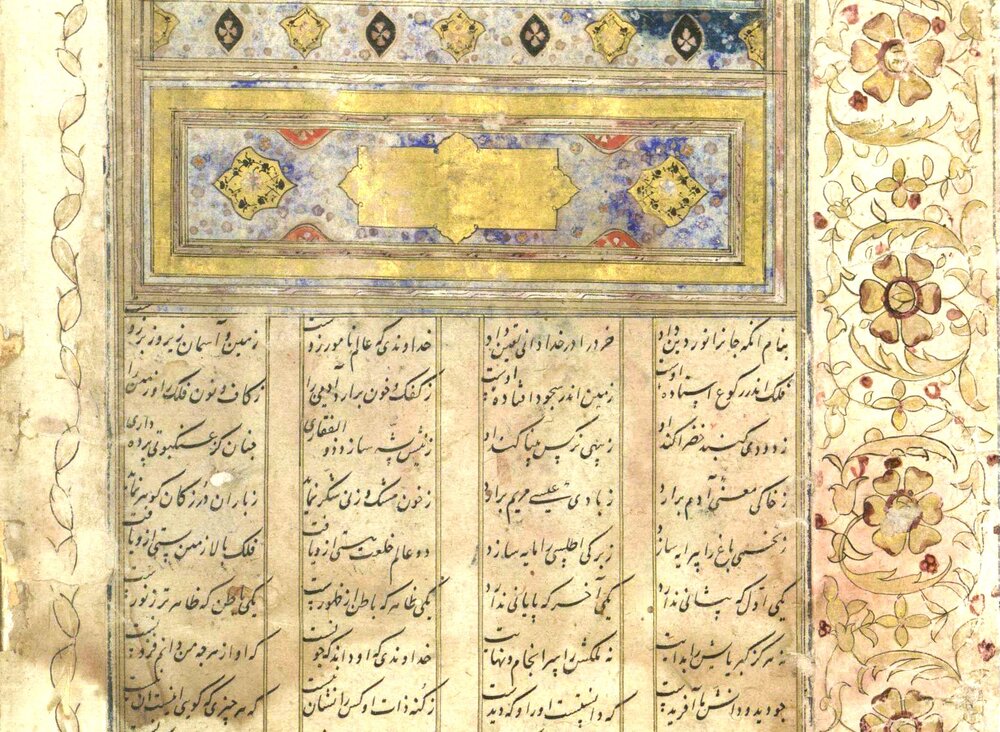
TEHRAN – The Astan-e Qods Razavi Museum and Library shared more fascinating details about a rare 530-year-old manuscript of the Kulliyat-i Attar that was showcased for the first time in Mashhad on Tuesday.
The manuscript is composed of the Asrar-nameh (Book of Mysteries), Mantiq at-Tayr (Conference of the Birds), Mosibat-nameh (“Book of Affliction”) and 76 love poems by the Persian mystic and poet Farid ud-Din Mohammad ibn Ebrahim Attar Neyshaburi (C. 1142-1220).
This is the oldest of 142 manuscripts of Attar’s works, which are preserved at the library’s storehouse, Seyyed Reza Sedaqat-Hosseini, a manuscript expert of the library, said during the unveiling the ceremony of the book.
He called the book one of the most beautiful manuscripts, which was donated to the library by Reza Naeini in 1932.
Ali ibn Heidar Qasemi is the calligrapher of the collection written in 222 pages. He completed inscribing the Asrar-nameh in Mehrabad near Neyshabur on December 1, 1491.
The calligraphy of the Mosibat-nameh was finished in the same place on February 20, 1492, while the inscription of the love poems were completed on February 2, 1497, in Gazorgah near Ansarieh and the Mantiq at-Tayr was finished on December 17, 1505 in Mehrabad near Neyshabur.
Poems on each page have been inscribed in 19 lines in four columns. Each page has also been illuminated with floral motifs by gold, azure and cinnabar.
Attar is most famous for the Mantiq at-Tayr, an allegorical poem describing the quest of the birds (i.e., Sufis) for the mythical Simorgh, or Phoenix, whom they wish to make their king (i.e., God).
His Elahi-nameh and the Mosibat-nameh (“Book of Affliction”) both are mystical allegories similar in structure and form to the Mantiq at-Tayr.
Attar was also the author of the Elahi-nameh (The Book of God), Mokhtar-nameh and Tadkerat al-Awliya.
UNESCO is commemorating Attar by registering the 800th anniversary of his passing on its 2021 calendar of events.
Attar’s works have been published in several languages across the world.
TAGS

No comments:
Post a Comment